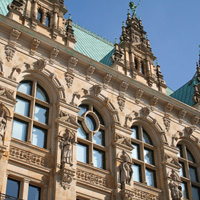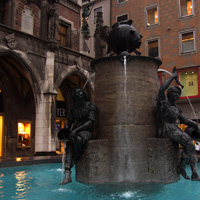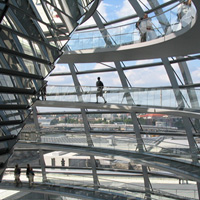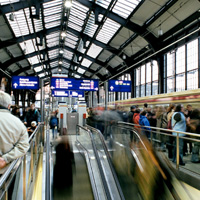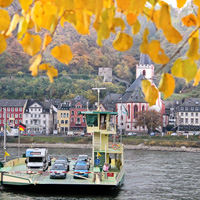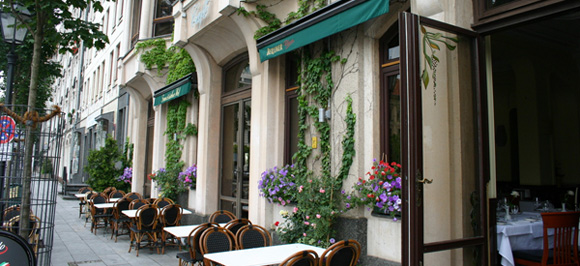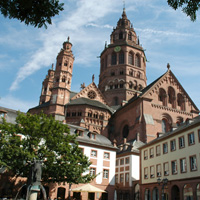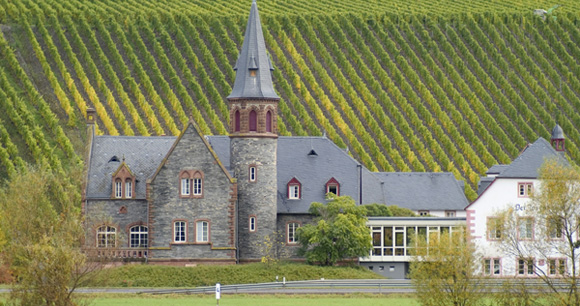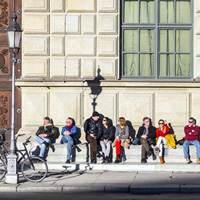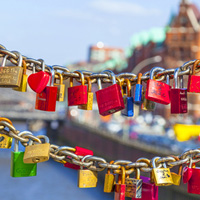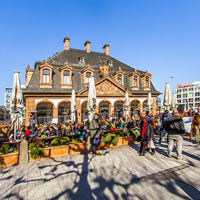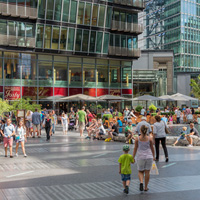Germany
Coastal BeachesGermany, officially known as the Federal Republic of Germany, is a country in Central Europe that is rich in history, culture, and natural beauty. It is the most populous member state of the European Union and is known for its influential role in both European and global affairs. The country is characterized by its diverse landscapes, which range from the windswept North Sea coastlines to the rugged peaks of the Bavarian Alps in the south. Forests, rivers, and vineyard-covered hills add to the picturesque scenery of the countryside. Germany's history is a tapestry of significant events, from the Holy Roman Empire to the tumultuous 20th century that saw two world wars and the division and eventual reunification of East and West Germany. Today, Germany is a leading economy with a strong industrial base, particularly renowned for its automotive, engineering, and manufacturing sectors. It is also a cultural hub, with a vibrant arts scene, numerous festivals, and a rich tradition of music and philosophy. The capital, Berlin, is known for its art scene, nightlife, and modern landmarks like the Brandenburg Gate. Other major cities include Munich, famous for its Oktoberfest and beer halls, Frankfurt, with its skyscrapers and business district, and Hamburg, a major port city with a network of canals. The German people are known for their precision, efficiency, and contributions to science, literature, and philosophy. The country is also a leader in environmental technology and sustainability, reflecting a strong national commitment to protecting the environment. With a high standard of living, a well-developed social market economy, and a comprehensive welfare system, Germany continues to attract people from around the world as a place to live, work, and study.
 GeoBlue
GeoBlueGet Quote
GeoBlue is a trusted leader in international health insurance. Wherever your destination, GeoBlue can keep you and your family covered with the right health insurance. Get a GeoBlue Quote Today!
 GeoBlue
GeoBlueGeoBlue is a trusted leader in international health insurance. Wherever your destination, GeoBlue can keep you and your family covered with the right health insurance. Get a GeoBlue Quote Today!
Get Quote
Living in Germany
Best Places to Live in Germany
Visa & Residency
Obtaining a residency in Germany involves several steps and the process can vary depending on the type of visa one is applying for. For expatriates, the most common types of residency visas include the EU Blue Card, Residence Permit for Employment, and Residence Permit for Self-Employed Business Purposes. The EU Blue Card is targeted at highly skilled professionals from non-EU countries who have a job offer in Germany with a minimum salary threshold. Applicants must have a recognized university degree or equivalent. The Residence Permit for Employment is for those who have a specific job offer in Germany, while the Residence Permit for Self-Employed Business Purposes is for entrepreneurs planning to start a business in Germany. To apply for any of these visas, one must first secure a job offer or prove their business plan's viability. The next step is to schedule an appointment with the German embassy or consulate in one's home country to submit the visa application. Required documents typically include a valid passport, proof of health insurance, proof of accommodation in Germany, and relevant certificates or diplomas. For the freelance visa, which is popular among digital nomads, applicants must also provide evidence of their freelance work, such as contracts or letters of intent from potential clients, and prove that their work is in demand in Germany. Once the initial visa is granted, which allows entry into Germany, expatriates must then register with the local residents' registration office and apply for a residence permit to stay longer than the visa's validity. The residence permit application process involves providing additional documentation, such as proof of financial stability and a clean criminal record. The duration of the residence permit can vary, but it is often issued for one year and can be renewed. The EU Blue Card, for example, can lead to permanent residency after 33 months, or 21 months with a B1 level of German language proficiency. Overall, while the process can be bureaucratic and requires thorough preparation, it is generally considered average in terms of difficulty compared to other countries. It is essential to start the application process well in advance of the intended move date and to ensure all paperwork is meticulously completed and accurate.
Healthcare in Germany
Germany is known for its efficient and high-quality system, which is a mix of public statutory health insurance (Gesetzliche Krankenversicherung, GKV) and private health insurance (Private Krankenversicherung, PKV). The public healthcare system is funded by a combination of employer and employee contributions and covers the majority of the population. It provides access to a wide range of medical services with generally low out-of-pocket costs. Private healthcare offers more personalized service and shorter waiting times but at a higher cost. Quality of care in both public and private sectors is generally high, with well-trained medical staff and modern facilities. Expats and digital nomads who are residents in Germany and contribute to the social security system can access public healthcare. Those who are not eligible for the public system or prefer more comprehensive coverage can opt for private insurance. Expats must have health insurance to obtain a residence permit.
Cost of Living
The cost of living in Germany is considered moderate when compared to other Western European countries. Essentials like housing, food, and transportation are reasonably priced, but costs can vary significantly between rural areas and major cities.
Weather
Germany experiences a temperate climate with four distinct seasons. Winters can be cold with snowfall, especially in the mountains, while summers are warm and can occasionally be hot. Spring and autumn are generally mild but can be unpredictable with rain and occasional warm spells. The country's weather is influenced by Atlantic Ocean currents and the topography, leading to regional variations.
Educational System in Germany
The educational system in Germany is known for its high quality and is structured into various stages. Children typically start their education at the age of six by attending Grundschule (primary school), which lasts for four to six years, depending on the federal state. After Grundschule, students are tracked into one of three different types of secondary schools: Hauptschule, Realschule, or Gymnasium, based on their academic ability and the recommendation of their teachers. Hauptschule prepares students for vocational education and ends with the 9th or 10th grade, while Realschule concludes with the 10th grade and prepares students for higher vocational schools or specialized upper secondary schools. Gymnasium is designed for students continuing to higher education and culminates in the Abitur examination after the 12th or 13th grade, which qualifies them for university. There are also Gesamtschulen, which combine all three tracks. In addition to public schools, there are private and international schools, especially in larger cities, catering to the needs of expatriate families. The German education system emphasizes a well-rounded curriculum, including languages, sciences, mathematics, arts, and physical education, with a strong focus on vocational training and apprenticeships in the secondary stage.
Universities in Germany
The university system in Germany is recognized for its high-quality education and research opportunities. It comprises public and private universities, including Universities of Applied Sciences (Fachhochschulen) and technical universities. Public universities in Germany charge minimal to no tuition fees for both domestic and international students, making higher education accessible. Bachelor's degrees typically take three to four years to complete, while Master's programs usually last two years. Doctoral programs' duration can vary but often take around three to five years. The academic year is divided into winter and summer semesters. Germany offers a wide range of study programs taught in German and an increasing number in English, particularly at the graduate level. Prospective students are required to have a recognized Hochschulzugangsberechtigung (HZB), or university entrance qualification, which can be obtained by completing secondary education and meeting specific requirements. The German Academic Exchange Service (DAAD) is a valuable resource for foreign students, providing information and scholarships. Living expenses and semester fees, which cover administration costs and public transportation tickets, must be considered in addition to tuition when budgeting for university in Germany.
Copyright 1997-2025 Burlingame Interactive, Inc.

